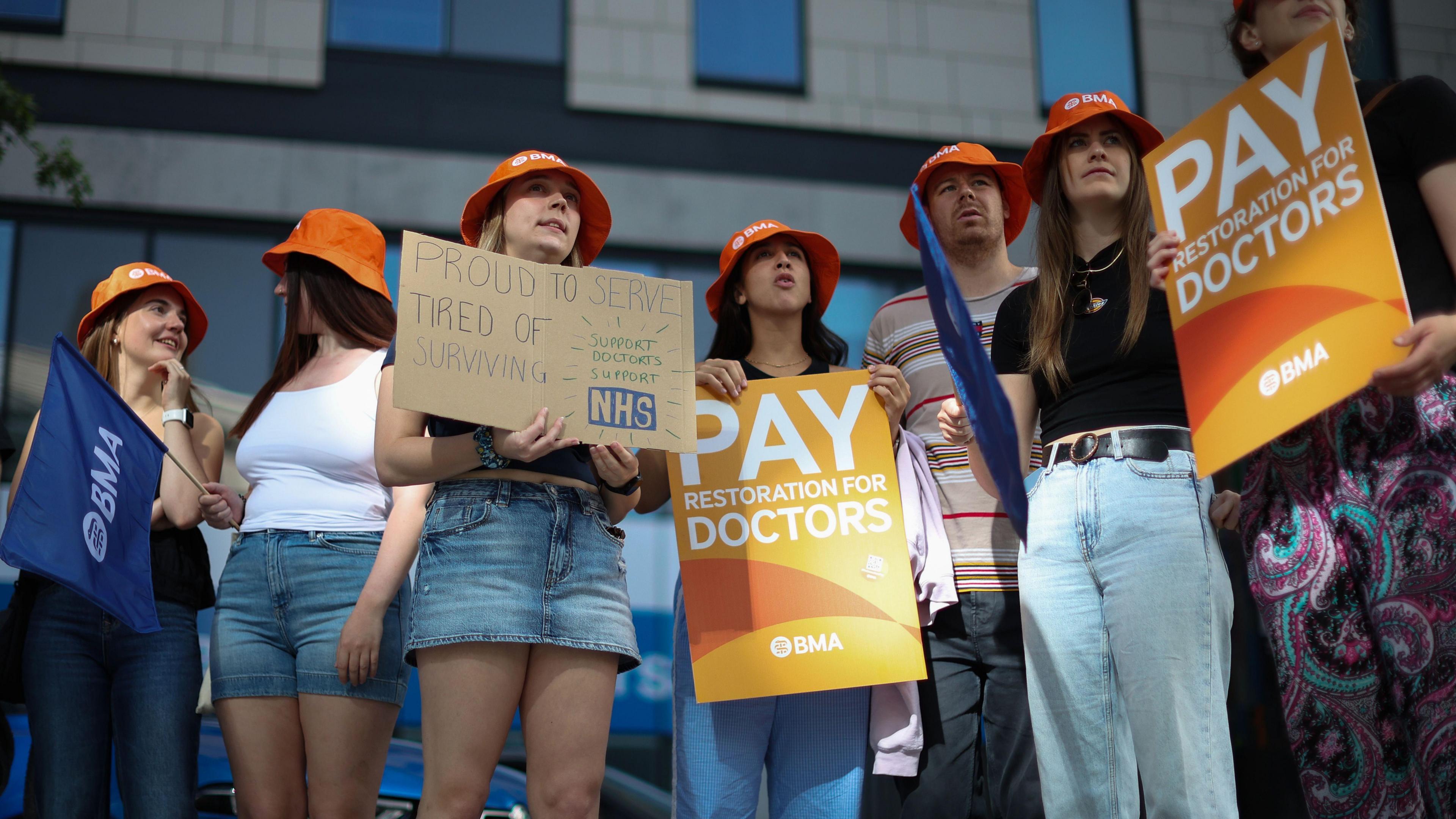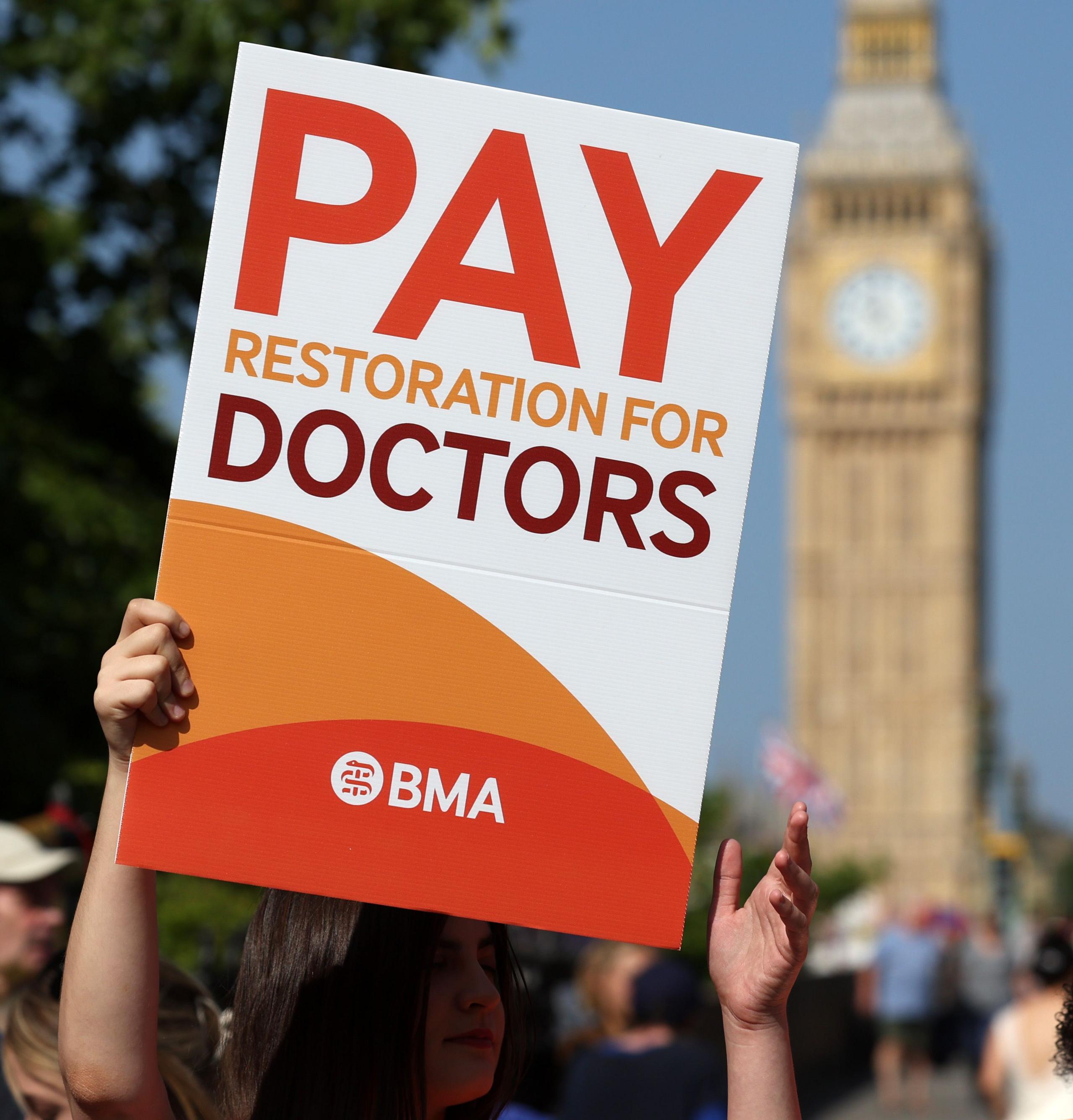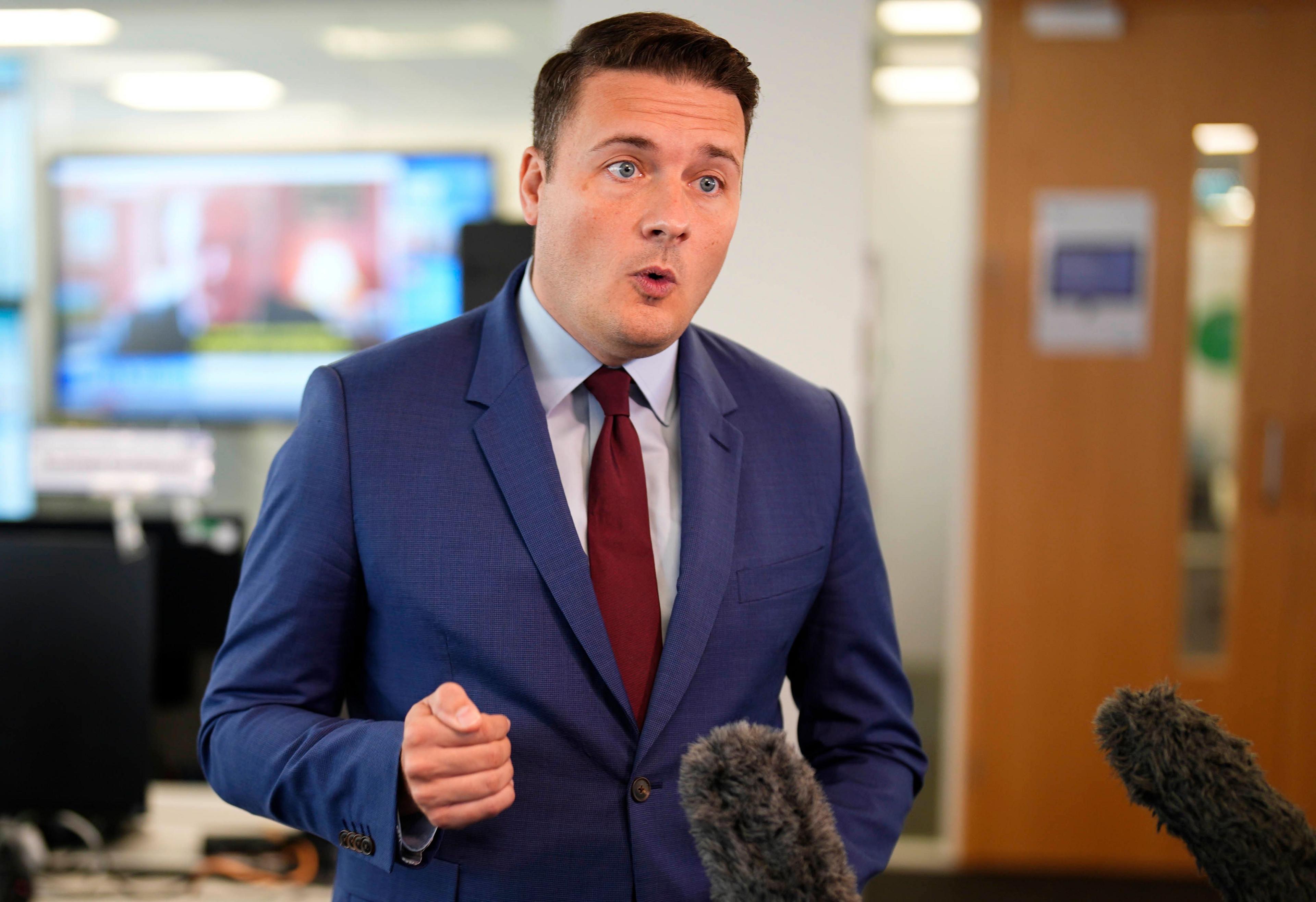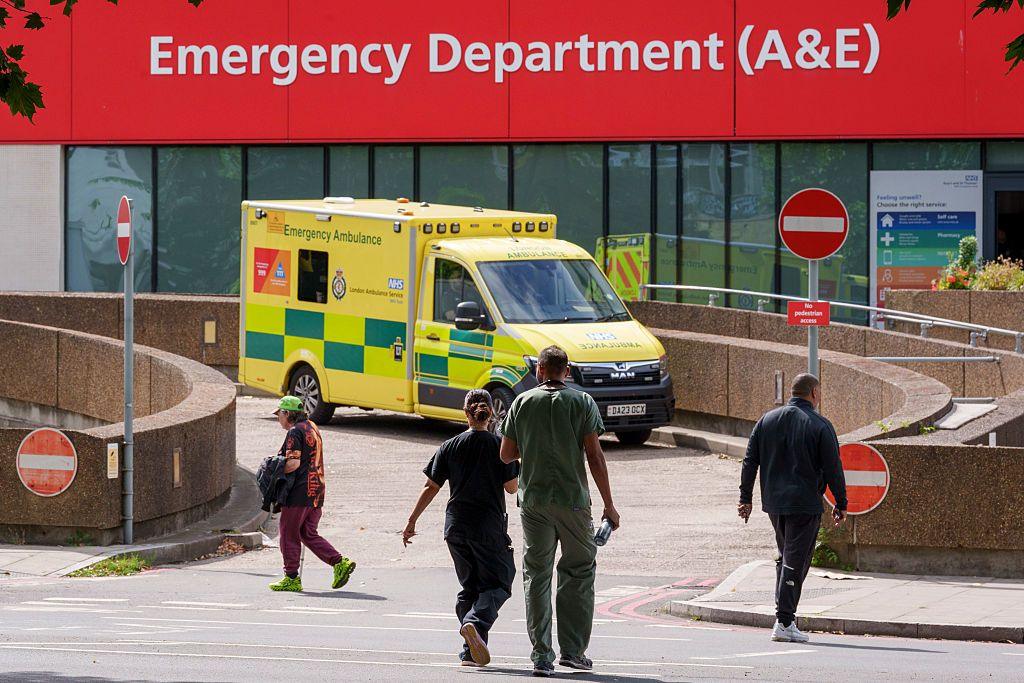Why are doctors striking in England?

Resident doctors striking outside of the Royal Liverpool University Hospital
- Published
Up to 50,000 NHS doctors are striking for five days in England, from Friday 25 to Wednesday 30 July.
The doctors who are striking are known as resident doctors, or junior doctors. Most are members of a union called the British Medical Association (BMA).
The minister who oversees the National Health Service (NHS), Wes Streeting, says he can't promise there won't be "disruption" to services during the strikes.
Members of the public are still encouraged to attend all appointments as long as they have not been told it is cancelled, and to still go to hospital or call 999 in an emergency.
Pharmacies and GP practices should also be running as normal.
- Published26 August 2022
- Published5 July 2023
- Published17 September 2024
What is a strike?

Strikes are a type of protest
A strike is when a group of workers come together and agree to stop working.
Employees do this when they want to protest against something they think is unfair where they work.
Many strikes are organised by something called a union.
A trade union is an organisation of workers from a particular job type or company.
They aim to help improve conditions for their members where they work.
You can read more about what strikes are here.
Who are resident doctors?

Resident doctors are fully qualified doctors who are either currently in postgraduate training or gaining experience as locally-employed doctors.
They may have many years of experience.
Resident doctors may also be training to specialise in a particular area of medicine.
They work under supervision of a senior doctor, and make up to half of doctors currently working in the NHS.
Why are resident doctors striking?
The union that represents two-thirds of resident doctors – the British Medical Association (BMA) - says a recent increase to resident doctors' pay does not go far enough.
The pay rise was proposed by the new Labour government in July 2024.
BMA members agreed to the pay deal after an 18-month dispute with the previous Conservative government, which included 11 resident doctor strikes.
Resident doctors received a 5.4% pay rise this financial year, with a 22% increase to their pay over two years.

Earlier in July, a vote called a ballot was held among BMA's members, and a majority voted to strike.
The BMA is calling for a salary rise of 29.2%, to bring salaries back in line with what they say was the value of resident doctors' salaries in 2008.
BMA resident doctor co-leaders Dr Melissa Ryan and Dr Ross Nieuwoudt said: "Resident doctors are not worth less than they were 17 years ago.
"Restoring pay remains the simplest and most effective route toward improving our working lives."
What has the government's response been?

Health secretary Wes Streeting has called the strikes "irresponsible"
Prime Minister Keir Starmer said the BMA was "rushing" into the strikes, in an article in the newspaper, The Times.
Health secretary Wes Streeting called the strikes "irresponsible".
Mr Streeting praised NHS workers who weren't striking and who were cancelling holiday plans or working extra hours during the strikes.
"I'm really proud of the way that NHS leaders and frontline staff have prepared and mobilised to minimise the disruption and minimise the risk of harm to patients," he told PA News on Friday.
What has the reaction been elsewhere?

Conservative shadow health secretary Stuart Andrew blamed Labour for the strikes, saying they had been too generous to the doctors last year.
"They handed out inflation-busting pay rises without reform and now the BMA is back for more," he said.
NHS bosses have said that strike action is "bad for patients, for staff and for the NHS".
